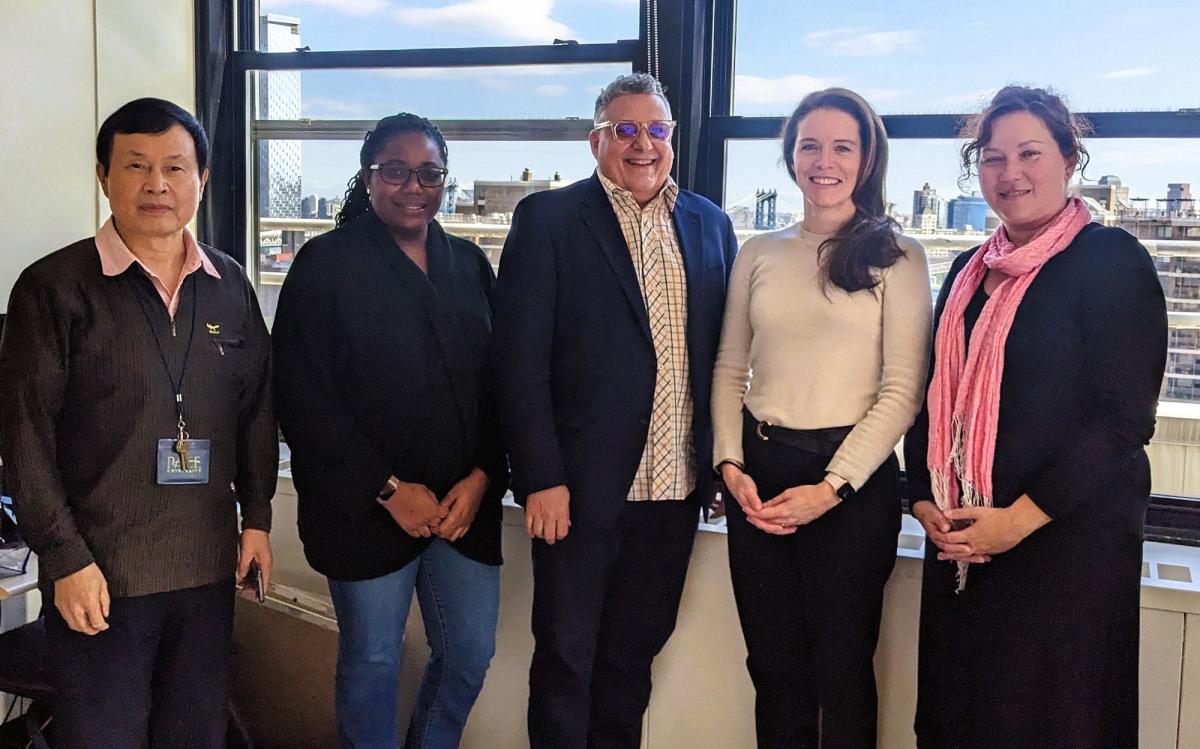
Impactful, faculty-led, community-engaged research
Rigorous academic instruction integrated with high-impact, faculty-led, community-based research and engagement is a hallmark of Pace University’s Master of Public Administration (MPA) program.
Department Chair and Professor Rebecca Tekula shares insights into the program’s influential research projects that provide valuable experiential learning opportunities for students.

The program’s reputation for delivering community-based research in New York City and Westchester County is quite strong. How have those partnerships been developed?
Our faculty have cultivated strong relationships with a variety of civic, nonprofit, and governmental organizations through collaborative research projects which are responding to community needs in real-time. Their leadership on these initiatives demonstrates their passion for their discipline, and their ability to work alongside our community and students as true partners.
What recent community-based research projects have MPA faculty and students been engaged with?
Community-engaged research is a powerful collaborative process that incorporates input from the people and organizations that the research outcomes will impact as equal partners in the research process. This can take many forms including co-designing the research questions, dialoging and deciding on the method and approach, influencing policy, and ultimately creating programs and interventions that address the issues that arise in the research findings–with the community ultimately a true partner on these decisions that will affect their own lives.
Pace’s campus locations facilitate rich, cross-sectoral collaborations, enabling our faculty and students to contribute directly to the policy-making processes that shape the communities we serve.
Westchester County’s Opioid Response and Overdose Prevention Initiative. Supported with more than $600,000 in funding, MPA faculty and students are partnering on Westchester County’s Opioid Response and Overdose Prevention Initiative to develop and evaluate a comprehensive prevention curriculum that helps young people better understand, navigate, and avoid harm from co-occurring mental health and substance use disorders, while also helping the concerned adults in their lives be similarly informed so that they can effectively support them.
Council of Family and Childcare Agencies. Another example is our partnership with the Council of Family and Childcare Agencies, developed to assess the financial health and condition of their more than 100 member organizations. These nonprofits provide child welfare services that focus on foster care, adoption, family preservation, and juvenile justice services. The research and report will help to shape policy decisions at both city and state levels.
Westchester County Hispanic Community Needs Assessment. We are very proud to be a part of this project with our students and neighbors. Together with the Hispanic Advisory Board to the County Executive of Westchester County, George Latimer, we are working to understand the services and supports needed in the Hispanic community in Westchester, addressing areas including education, healthcare, employment, and housing and social services, all toward the goal of informing and improving policy and the delivery of services and supports.
Projects and partnerships like these not only inform public policy but also provide our students with opportunities to engage in projects with real-world applications.
How have Pace’s campus locations helped faculty foster community-based research projects?
Pace’s New York City and White Plains campuses offer unique opportunities for faculty and students to engage with vibrant civic centers and government institutions. In New York City, where our campus is situated directly across from City Hall, and alongside the Brooklyn Bridge, faculty have worked with a wide array of public agencies and nonprofit organizations. We have deep ties to neighborhood organizations and agencies, such as the New York Climate Exchange, which will create a world-leading climate solutions center on the 172-acre Governors Island. Our White Plains campus, where our program launched 45 years ago, draws from our deep ties with Westchester County’s civic leaders, providing a foundation for learning and connection for students, alumni, and faculty.
Pace’s campus locations facilitate rich, cross-sectoral collaborations, enabling our faculty and students to contribute directly to the policy-making processes that shape the communities we serve.
